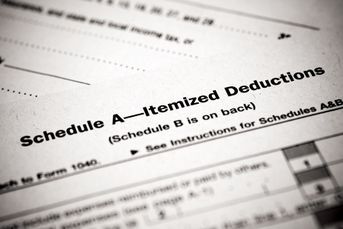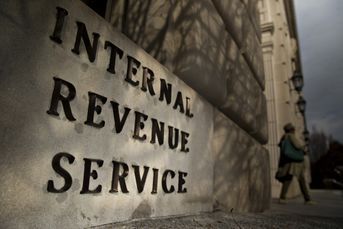Repeal of investment expense deduction may change advisers’ fee strategy
The change may not be that big a deal for many clients, but they need to understand their options.
The last two months of 2017 were a blur of activity when it came to income taxes, as financial advisers and clients scrambled to decipher what was rumor, what was actually proposed and what finally became law.
One change that may have slipped by some clients, but certainly caught the attention of advisers, was the repeal of the deduction for investment expenses, including quarterly asset management fees. (In fact, all miscellaneous deductions were repealed — which includes things like unreimbursed business expenses, tax preparation fees and union dues.)
The following are some of the issues advisers should be prepared to discuss in the wake of this lost deduction.
Just because the IRS allowed a deduction for fees paid to manage investments doesn’t mean that always resulted in a lower tax bill. The limitations on the deduction precluded many from actually getting a tax benefit.
First off, only fees incurred to produce taxable income were deductible. That means fees paid to manage a tax-exempt bond portfolio were excluded. It also means fees paid using IRA assets were non-deductible. Basically, only fees paid from a taxable account that held taxable-income producing assets were eligible.
[More: Are portfolio management fees tax deductible?]
Not Always a Savings
Secondly, the combined amount of miscellaneous deductions had to exceed 2% of adjusted gross income before they provided a benefit. Lastly, miscellaneous deductions weren’t allowed under the alternative minimum tax, meaning an investor who was subject to or close to the AMT wasn’t able to claim the deduction. These two limits kept many high- or even medium-income taxpayers from benefiting.
In other words, even under the old rules, investors might not have been able to use their fees to reduce taxes, making the repeal of the deduction a moot point.
[More: When are management fees deductible?]
For those who could exceed the AGI threshold and for whom the AMT wasn’t an issue, these fees did result in a tax savings — but only if paid from a taxable account. To maximize this tax benefit, some firms allow investors to pay the fee to manage their IRA assets from a taxable account. Does that still make sense under the new rule?
By continuing to pay the fee from the taxable account, the investor leaves more funds inside the IRA to keep growing on a tax-deferred basis (or in the case of a Roth IRA, tax-free). Over enough years, this can be a meaningful addition to the value of the account.
Conversely, paying the fee from the IRA is not considered a taxable withdrawal, meaning an investor is paying an expense with dollars that have never been taxed. How many investors would jump at the chance to pay their monthly phone or internet bill on a pretax basis? While that’s not possible, using an IRA for the investment fee can be a tax-efficient way to use those IRA dollars. But beware — using the IRA to pay the fee for a taxable account would be considered a withdrawal.
So which is better? As usual, that depends. Investors in higher tax brackets may find that using IRA dollars without paying tax on them is an attractive option. On the other hand, those in the lower tax brackets may prefer to pay the fee outside the IRA.
Charging the IRA for its own fees also reduces the balance in the account, which then reduces the required minimum distribution during retirement. For those retirees who find their RMD is more than they actually need from their IRA, this might be an attractive strategy.
Regardless of the approach, advisers should be prepared to have these discussions with their clients — hopefully before the next billing cycle.
Learn more about reprints and licensing for this article.








